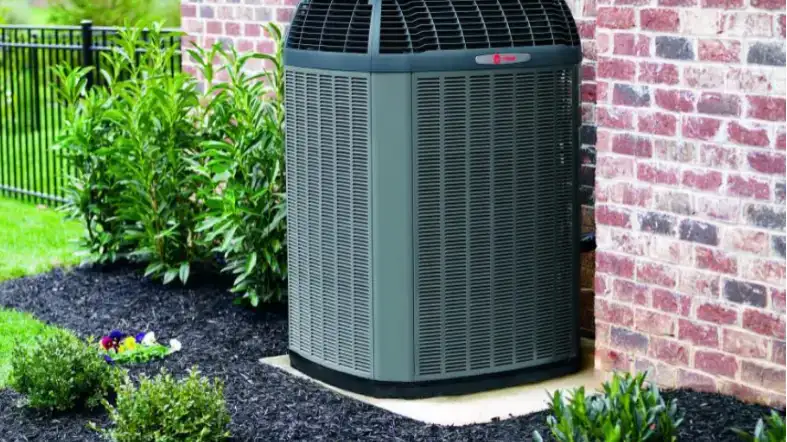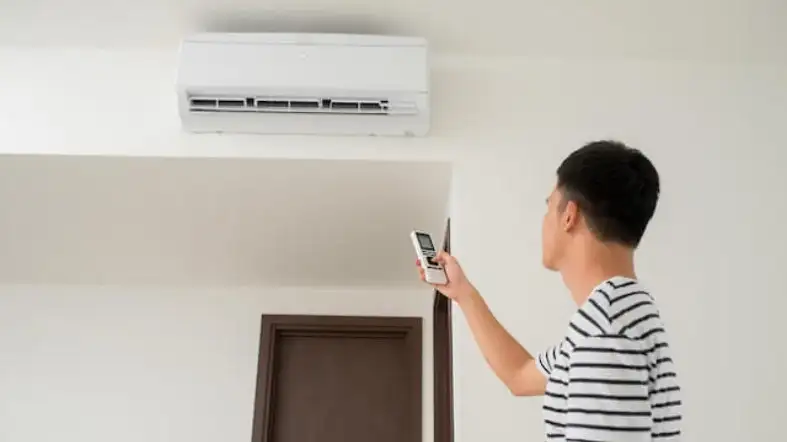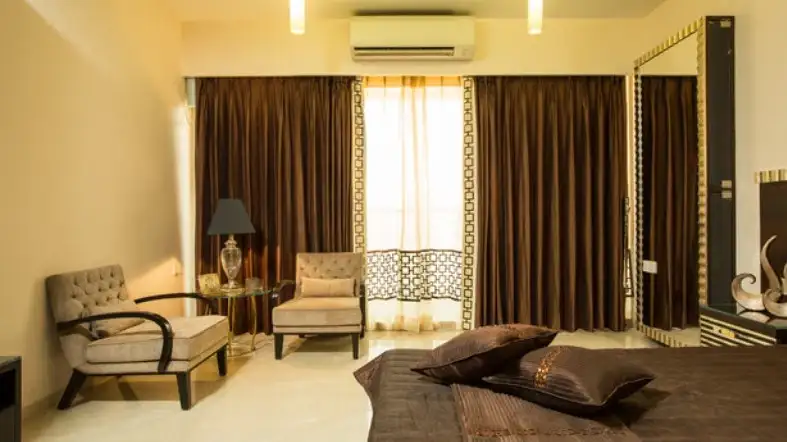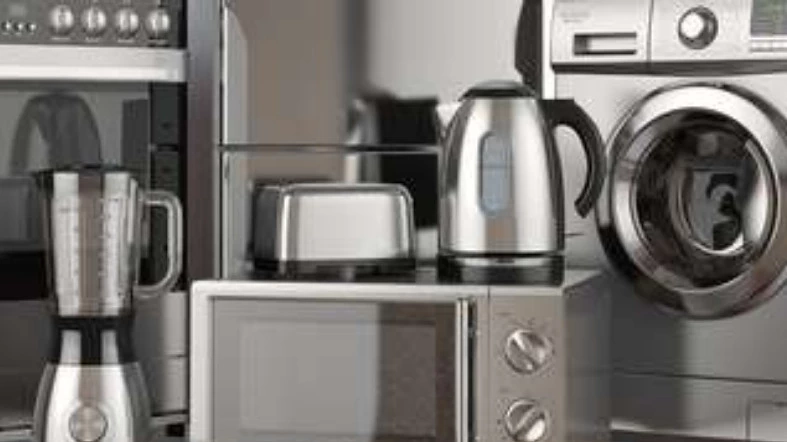Are you tired of sweltering summer days when your 1300-square-foot house feels more like an oven? Want to know What Size AC Unit For 1300 Square Foot House so you can feel comfortable and avoid skyrocketing energy bills? Fear not
This article will guide you through the process of determining the right AC size, exploring various types, and discussing the installation process.
Stay tuned for a comprehensive guide to ensure a comfortable and cost-effective cooling solution for your home.

What Size AC unit For 1300 Square Foot House?
For a 1300-square-foot house, an AC unit with a cooling capacity of approximately 23,000 to 30,000 BTUs (British Thermal Units) is recommended for optimal comfort and energy efficiency. Be sure to consider factors like insulation and climate for a precise choice.
1300 Square Foot House AC Unit Size Chart:
| Climate Zone | Recommended AC Unit Size |
| Hot and Humid | 2.5 to 3 tons |
| Hot and Dry | 2 to 2.5 tons |
| Moderate | 1.5 to 2 tons |
| Cold | 1 to 1.5 tons |
>> What size air conditioner do I need?
Understanding BTUs and Tonnage
These two measurements play an important role in determining the size of the AC unit you need for your 1300-square-foot house.
BTU
BTUs, or British Thermal Units, measure the amount of heat an AC unit can remove from a room per hour. The higher the BTU rating, the more cooling power an AC unit has.
For a 1300-square-foot house, you’ll generally need an AC unit with a BTU rating between 21,000 and 23,000.
Tonnage
Tonnage, on the other hand, refers to the amount of heat an AC unit can remove in one hour.
One ton of cooling is equal to the amount of heat required to melt one ton of ice in 24 hours.
So, when you see an AC unit listed as 2-ton or 3-ton, it means the unit can remove 24,000 or 36,000 BTUs of heat per hour, respectively.
here’s a table summarizing the relationship between BTUs and tonnage:
| Tonnage | BTUs Per Hour |
| 1 ton | 12,000 BTUs |
| 1.5 ton | 18,000 BTUs |
| 2 ton | 24,000 BTUs |
| 2.5 ton | 30,000 BTUs |
| 3 ton | 36,000 BTUs |
| 3.5 ton | 42,000 BTUs |
| 4 ton | 48,000 BTUs |
| 5 ton | 60,000 BTUs |
>> What size ac unit for 10×10 room?
How to determine the perfect size AC unit for your home?
Here are the steps to follow to determine the right size AC unit for your home:

Know The BTUs And Tons Measurement Units
There are 12, 000 BTUs in every ton of the AC. So, if an air conditioner has written
24,000 BTUs on it. It refers to 2 tons. 24,000 Btu’s/12,000 Btu’s per ton = 2 tons
Know the climate zone
The next is the climate zone. The number of BTUs you need per square foot essentially depends on your climate zone.
We will discuss this later. But, for now, you have to know your climate zone.
For instance, take the climate zone 1 of the USA, which consists of the southern part of the United States and parts of Arizona, Nevada, New Mexico, and California.
And take climate zone 5, which consists of the northern part of the nation.
| Climate Zone | BTUs per square foot |
|---|---|
| 1 | 30 – 35 Btu’s per square foot |
| 5 | 50 – 60 Btu’s per square foot |
So, very clearly, if you know your climate zone, you will be able to determine the perfect AC unit for your home.
Know the heating efficiency
The search for the perfect unit doesn’t rest with the BTUs or climate zone.
The efficiency rating is of great significance. There is no unit that will heat at 100% efficiency. So, how to check it out?
For instance, take a Unit of 10, 00 BTU that has an efficiency rating of 93%.
- 10,000 BTUs
- (X) .93 efficiency rating
The actual BTU output stands at 9,300 BTUs.
Take another instance of a unit of 23, 000 BTUs, which ensures an efficiency rating of 89%.
- 23, 000 BTUs
- (X) .89 efficiency rating
The actual BTU output stands at 20, 470 BTUs.
What To Consider Before Buying An Air Conditioner?

BTUs
The short for British Thermal Units, BTS, is a unit to determine how much energy is necessary to produce heat in a certain given condition.
The amount of heat energy necessary to raise the temperature of one pound of water by one degree Fahrenheit is equal to one BTU.
Seasonal Energy Efficiency Ratio
The second most important thing to determine the most efficient central air unit for you is the Seasonal Energy Efficiency Ratio, SEER.
The BTUs will give you an overall idea, but to know how it will function in the toughest/hottest weather conditions, you need to know about the SEER.
Put simply, this ratio indicates how efficient your system is even when it’s operating in the hottest temperatures possible.
The unit for your 1,300-square-foot home shall have at least a SEER of 11.6.
The good thing is that in today’s world, the newest models of air conditioners in the market have more than an 11.6 rating.
Because, with a rating less than that, the authority doesn’t even allow the marketing of such air conditioners.
So, nowadays, a SEER of 13 is the minimal standard for efficient functioning.
Design and location of your house

Think about other factors that might make it more difficult or simpler to maintain a comfortable temperature in your house.
It’s possible that a home with a lot of shadows will demand 10 percent less electricity to cool.
On the other hand, the presence of a large number of windows, a lack of shade, and a climate characterized by abundant sunshine will exactly do the opposite.
Cooling speed
The pace of the cooling depends on the thermostat and fans, which work together to help you achieve varied temperatures at various times of the day.
A unit having an adjustable thermostat is everyone’s top priority nowadays.
The ability to establish varied pre-defined temperatures assists in enhancing the efficiency of the cooling system, which in turn minimizes the amount of energy that is used.
Heat Generating Appliances

Appliances that produce heat might also have an effect on the dimensions.
When you use your kitchen frequently for cooking, the amount of energy required to maintain a comfortable temperature in the room might grow dramatically.
This effect can also be caused by a large number of other heat-generating gadgets that you use on a regular basis.
Air Quality
When purchasing a new air conditioner, consider the quality of the air in your home. In order to improve your home’s indoor air quality, you’ll need an air conditioner with a decent filter.
In addition to cleaning dust and bacteria, the AC’s air filters may also remove smoke and smells.
A good air filter also prevents dust and grime from reaching the evaporator coil, which improves the AC’s performance and efficiency.
If you’re looking for an air conditioner, search for one with a decent dehumidification unit.
Moreover, you will experience superior cooling and comfort with air conditioners that also have effective dehumidification systems.
Installation and maintenance
The optimal outcome of an AC is also dependent on the AC’s installation.
A poorly installed air conditioner can have a negative impact on both its efficiency and its components. Compared to a split AC, installing a window AC is a breeze.
To avoid problems, it’s essential to have the air conditioner installed by a certified service shop or a professional.
Ensure the needed maintenance intervals for the system as well, to ensure that the air conditioner continues to function well.
The longevity of your AC may be increased by ensuring that it is installed correctly and that it receives routine maintenance.
>> What is the right size air conditioner for a 14×70 trailer?
Installing the Right Size AC Unit
Installing the right size AC unit is crucial for optimal cooling and energy efficiency. Here are some tips to ensure your new AC unit is properly installed:
Hire a licensed
Hire a licensed and experienced HVAC contractor. A reputable contractor will be able to properly size your AC unit and ensure it is installed correctly.
Follow the manufacturer’s instructions
Make sure to follow the manufacturer’s instructions for installation, including any specific requirements for electrical and ventilation systems.
Ensure proper placement
The location of your AC unit can affect its performance and efficiency. Ensure that the unit is placed in a shaded area, away from direct sunlight, and that it has proper clearance for airflow.
Use proper insulation
Proper insulation is key to maximizing your AC unit’s efficiency. Make sure your home is properly insulated to prevent cool air from escaping and hot air from entering.
Regular maintenance
Regular maintenance, such as cleaning or replacing air filters, can improve your AC unit’s performance and efficiency.
Make sure to schedule regular maintenance with your HVAC contractor.
FAQs About The Right Size AC Unit For 1300 Square Foot House
Is 3.5 Ton AC Too Big For A 1300 Sq Ft House?
As a matter of fact, it is. For a 1300 sq. foot house, you would need 23000 BTUs, which amounts to approximately 1.9 tons. So, choose wisely following the chart given above.
Can I Install My AC Myself?
To put it more succinctly, the answer is no; you should never try to do so. Even if you have the necessary expertise to install an air conditioning unit, the operation is inherently dangerous due to the numerous electrical components that must be dealt with.
Do I Need HVAC Experience To Choose The Perfect Size?
Any professional can help you with this. It takes a lot of nuanced expertise working with heating, ventilation, and air conditioning systems to guarantee that you purchase the ideal size AC unit for your home.
Can Additional Insulation Impact the AC Unit Size I Need?
Yes, having additional insulation can potentially allow you to opt for a smaller AC unit as it reduces the cooling load by preventing cool air from escaping and hot air from entering.
Does the Number of Windows Affect the Choice of AC Unit Size?
Indeed, the number of windows in your house can influence the AC unit size needed as more windows can allow more heat to enter, potentially requiring a unit with higher cooling capacity.
Final Words
Choosing the right size AC unit for your 1300-square-foot house is crucial for optimal cooling and energy efficiency.
By considering factors such as your home’s insulation, climate, and number of windows and doors, you can determine the appropriate tonnage and BTU capacity for your AC unit.
Hiring a reputable HVAC contractor for installation and regular maintenance can ensure that your new AC unit operates at peak efficiency.

